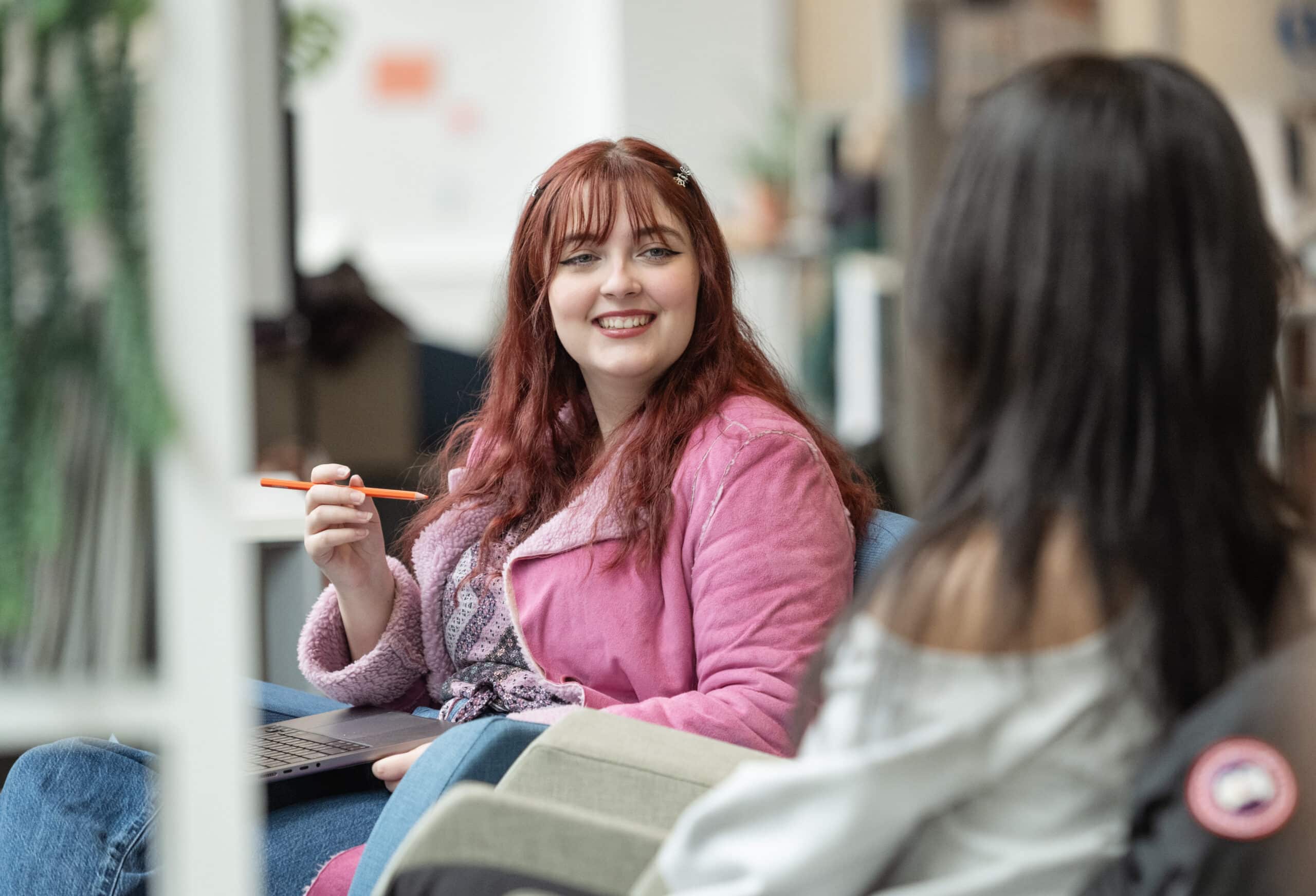Student Accessibility Services
Support is available to you from the moment you join ECU, and whenever you need it throughout your studies. If you are living with a disability or medical condition, whether temporary or ongoing, we’re here to help you access academic accommodations, assistive technology, and individualized support.
We’ll work with you to develop a personalized accommodations plan based on your learning needs. This plan outlines the supports you’re approved for and can be shared with your instructors to help ensure an accessible learning environment.
Your accommodations plan is not static. It’s a collaborative, evolving process, and we’ll connect with you at least once a year to review how things are going and make adjustments as needed.
How to Access
The best time to request accommodations is during class registration for the upcoming semester. Please contact us as soon as possible, as some accommodations may take extra time to organize. Book an appointment with our team.
Send us your documentation
Documentation about your disability helps us understand your needs.
- You or your medical provider can email it to studentaccessibility@ecuad.ca.
- To give us permission to consult with your medical provider, fill out this Consent to Collection/Disclosure of Information Form and send it to us with your documentation.
- If you don’t have documentation but you do have a medical provider, ask them to fill in this Functional Limitation Assessment Form and send it to us.
- If you don’t have documentation, or it’s out of date, in another language, or you just don’t know what to send us, that’s okay! You can let our team know when you meet with them.
Resources + Information
Explore Helpful Resources
Assistive Technology, Services and Other Supports
Assistive Technology British Columbia (ATBC)
ATBC provides assistive technology resources to make learning and working environments usable for people with disabilities.
Centre for Accessible Post-Secondary Education Resources (CAPER-BC)
CAPER-BC provides accessible learning and teaching materials to students and instructors who cannot use conventional print because of disabilities.
Post-Secondary Communication Access Services (PCAS)
PCAS is a province-wide service to support students with hearing loss.
Disability Awards
Disability Awards is a portal to awards and scholarships for students with disabilities studying at Canada’s colleges and universities.
ECU Neuro-Divergent and Disability Artists’ Collective
Open to all prospective and current students, staff, non-regular and regular faculty, alumni, drop-outs, those on sabbatical, leave of absences or all unsure about their relationship with university culture.
Student Aid BC Grants + Funding for Students with Disabilities
If you have a permanent disability and are applying for a student loan, complete the Appendix 8: Request for Permanent Disabilities Programs form.
This allows you to apply for:
- Non-repayable grants and bursaries
- Grants for services, equipment, and supplies
Once your permanent disability status has been approved, you won’t need to re-submit proof unless specifically requested.
If you need help completing the form, email studentaccessibility@ecuad.ca or book an appointment with Student Accessibility Services.
Programs + Funding Options
Request for Permanent Disability Programs (Appendix 8)
Apply using Appendix 8 to access grants, bursaries, supplies and equipment.
Canada Student Grant for Students with Permanent Disabilities
Supports part-time or full-time students with permanent disabilities by helping cover the cost of education.
Canada Student Grant for Services and Equipment for Students with Permanent Disabilities
Provides additional funding to help part-time or full-time students pay for exceptional education-related costs such as services and equipment.
Grants, Scholarships and Other Financial Supports
Explore additional non-repayable grants, scholarships and financial supports available to students with disabilities.
Full-time Student Funding
Loan and grant funding available to students studying full-time.
Part-time Student Funding
Loan and grant funding available to students studying part-time.
Your Privacy is Protected
Student Accessibility Services won’t share your information without your permission.
The student’s diagnosis and any documentation verifying a disability are confidential. Student Accessibility Services will not disclose such information to anyone without obtaining the student’s consent in writing, unless disclosure is required in compelling circumstances involving risk of harm to self or others.
To arrange an accommodation, it is understood that Student Accessibility Services may consult and share information to the extent necessary with:
- Other accommodation service providers (e.g. notetakers, interpreters)
- University administrators
- Faculty and staff at the university
Collection and disclosure of personal information is governed by the British Columbia Freedom of Information and Protection of Privacy Act. Student Accessibility Services will collect and, if necessary, disclose only that information required to develop and implement appropriate and reasonable accommodation for a student, and shall disclose such information only to those requiring such information to assist with the development or implementation of such accommodation.
The collection and disclosure of personal information as articulated by the preceding paragraph shall be undertaken only with the student’s prior written consent requiring accommodation.
Our Approach + Language Usage
Our Approach
Our work with students focuses on providing practical, individualized support. We recognize that students with disabilities and medical conditions have diverse needs and experiences, and our role is to help reduce barriers to learning by coordinating reasonable, appropriate accommodations.
We work collaboratively with students to understand their learning needs, identify suitable accommodations, and support access to learning environments. Our focus is on ensuring each student has realistic, reasonable accommodations that support participation and academic success.
To learn more about accessibility at ECU, visit ECU’s Accessibility Plan.
Language Usage
There are many ways to talk about disability, including identity-first language (for example, “disabled person”) and person-first language (for example, “person with a disability”). The staff at Student Accessibility Services primarily use identity-first language that affirms disability rights and justice throughout our work. Many government programs use person-first language that affirms the personhood of each individual. We recognize that disability communities have varied preferences for terminology and that both person-first and identity-first language are deeply rooted in the historical evolution of disability culture. Please tell us the language you prefer so that we can respect your preferences.
